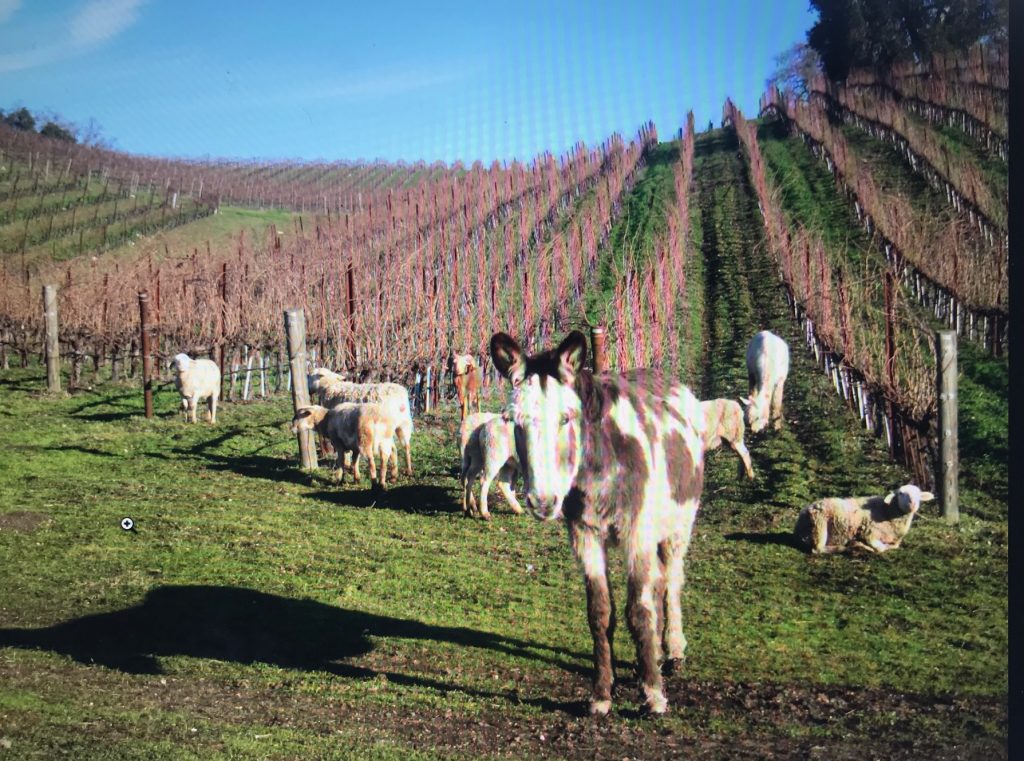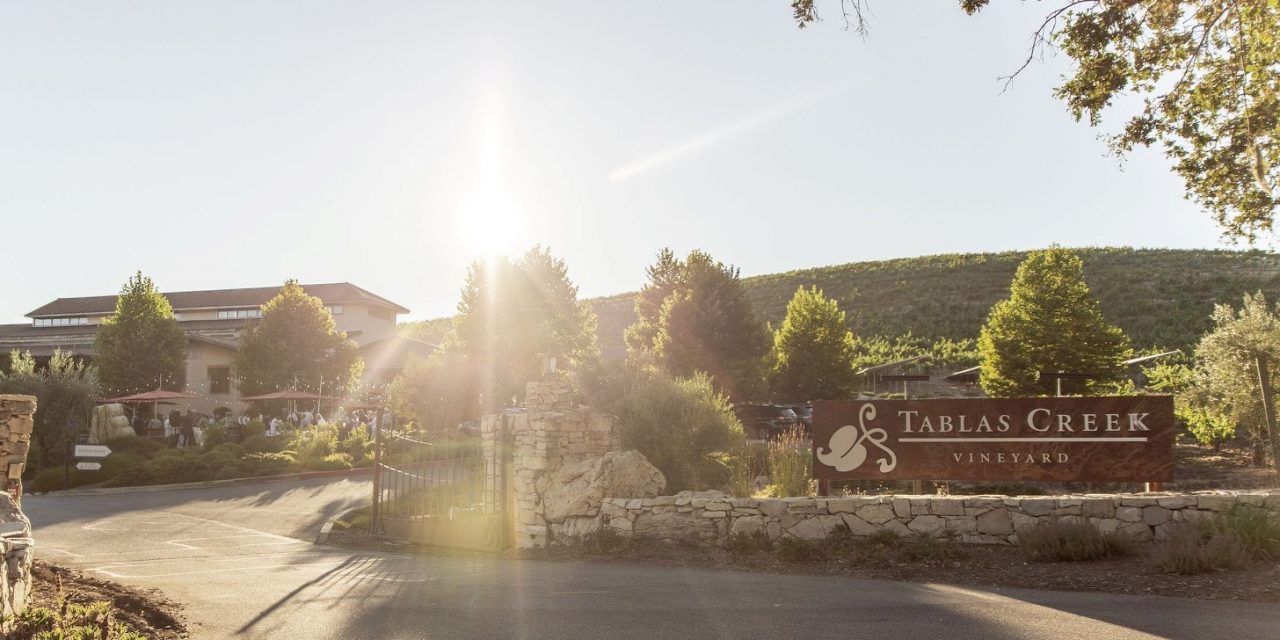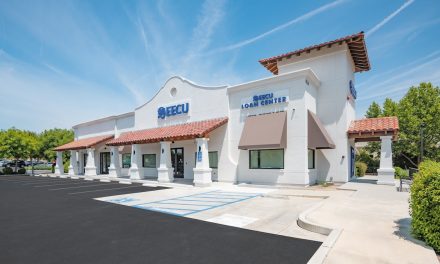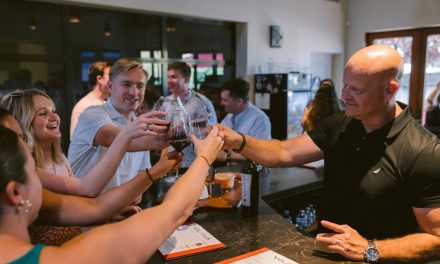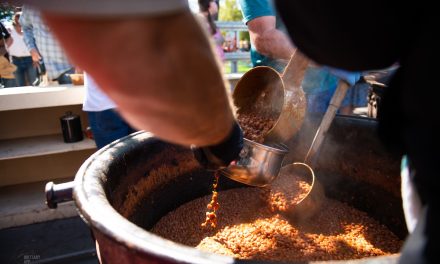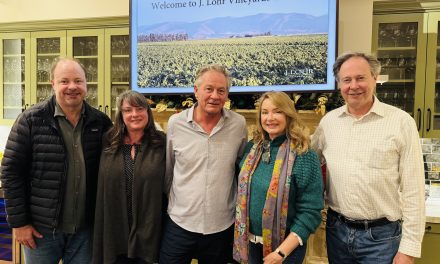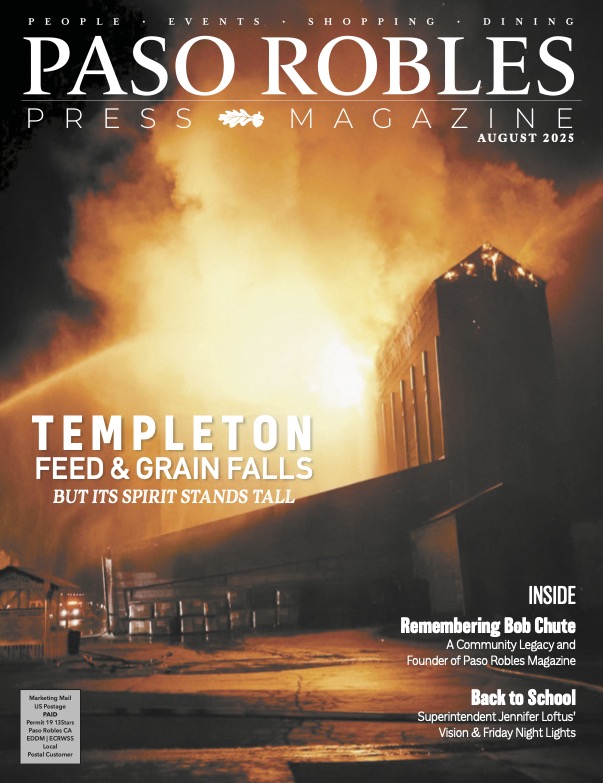Paso Robles Magazine January 2021
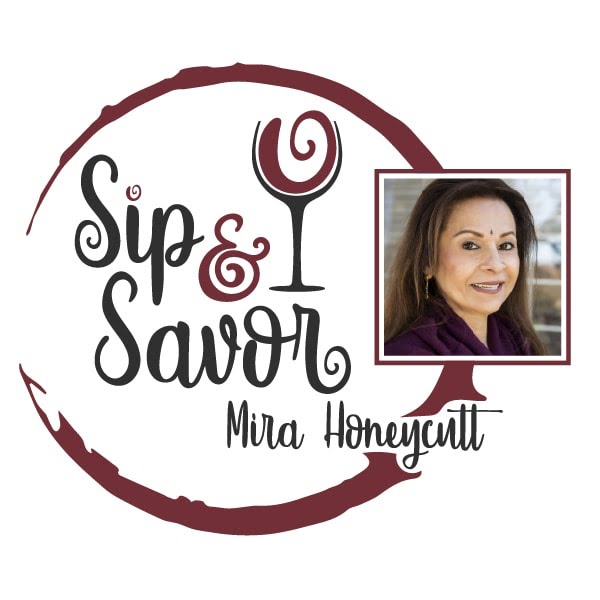
Tablas Creek Vineyard understandably prides itself on the number of “firsts” achieved by the winery.
It is certainly the first — and only — winery to import all grape varieties that grow in the Châteauneuf-du-Pape region of France. Consequently, Tablas Creek is the first to establish a style of wine that hasn’t existed before in North America —namely Châteauneuf-du-Pape-style blends and single varietal wines.
Jason Haas, Tablas Creek’s partner and general manager, is also pretty certain the winery on Paso Robles’ westside was the first to farm organically in Paso “other than hobby vineyards” and the first American-French collaboration in the Paso region.
But the winery’s latest “first” is truly a first among firsts. Tablas Creek Vineyard is the first winery in the world to receive the Regenerative Organic Certificate (ROC), a certification dedicated to organic and biodynamic farming, with an emphasis on climate change and reforming agriculture.
The certification came from the Regenerative Organic Alliance (ROA), based in Santa Rosa, California, an organization focused on three pillars of farming, namely soil health, animal welfare and social fairness.
Launched in 2017, ROA was created by a group of farmers and businesses, spearheaded by Patagonia clothing company, the Rodale Institute and Dr. Bronner’s, a producer of hair and body products.
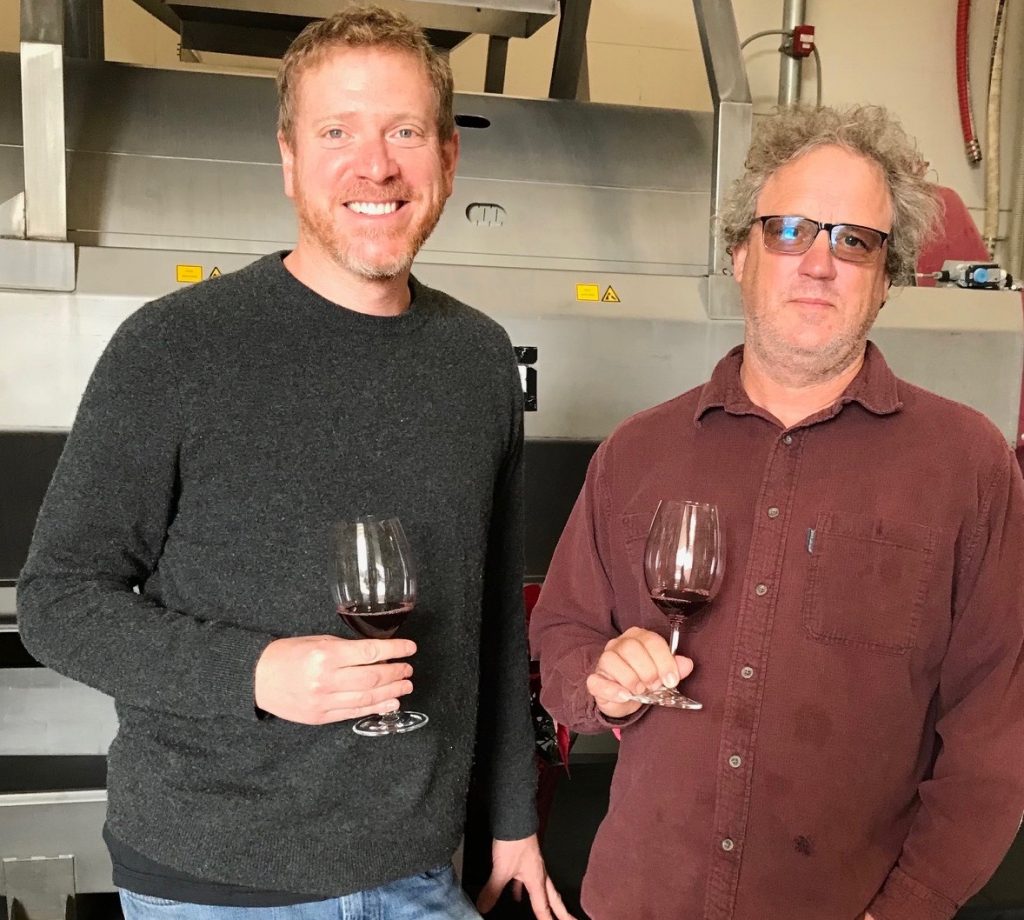
“The idea was to create a gold standard for farming that was not industry specific but would have modules specific to row crops, to orchards, to chocolate, to cotton — and we were the wine representative,” said Haas, when I met him on brisk fall afternoon at the winery.
The pilot program had 19 participants, of which 14 received certification, explained ROA’s executive director Elizabeth Whitlow in a phone conversation from Sebastopol, California. These certifications were given to famers in six countries.
Whitlow, added: “At this point we have 40 applicants in queue and are amazed that we have up to 175 inquiries from farmers and large clothing companies.” The textile world is keen to reducing carbon emission, she stressed.
Biodynamic farming was introduced at Tablas Creek in 2010 with the entire 175-acre property farmed to biodynamic by 2016. Thus the winery’s all encompassing farming practices were on the radar of ROA when they asked the winery to participate in the pilot program in 2019 after Fetzer Winery dropped out.
ROC requires high standards to get even to the baseline, Haas noted. “Nobody got a Gold the first time around. We got a Silver award in August.” So starting with the 2020 vintage, Tablas Creek’s 22,000 cases of estate wine will bear the ROC certification stamp.
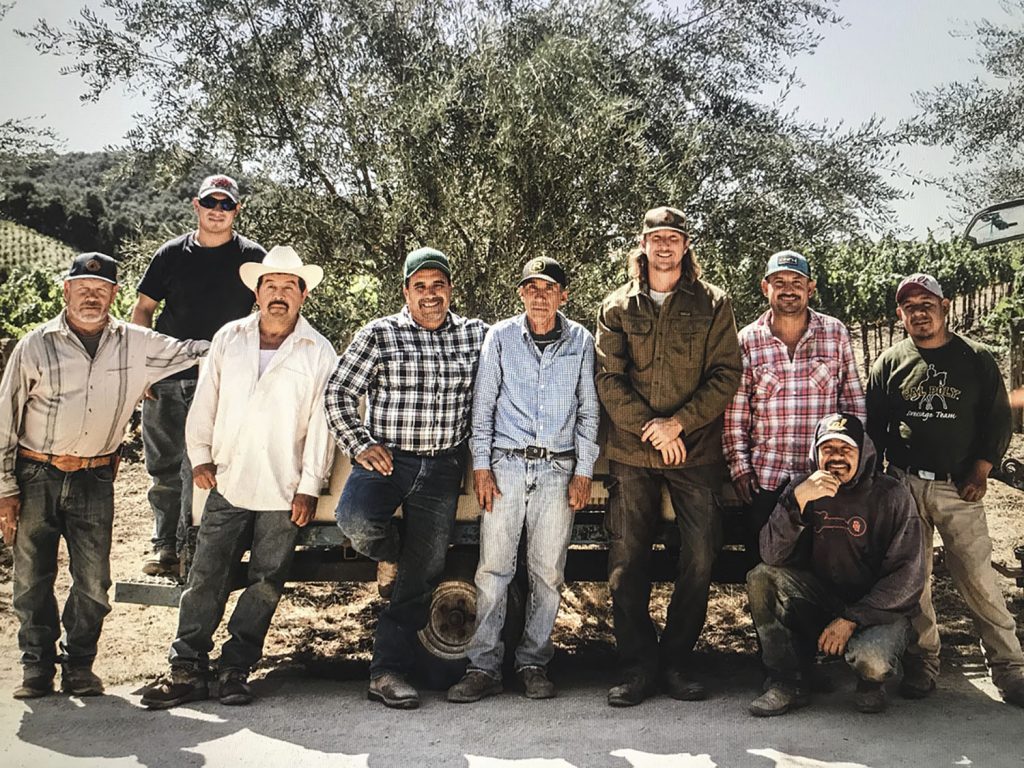
So what exactly is regenerative organic farming, I ask?
“The baseline for it was to create a truly rigorous certification program that wasn’t limited to just the soil but incorporated business practices, climate mitigation so you can show you’re capturing carbon into your soil and resource use reduction so you’re using less water and energy,” Haas replied.
“And then there’s a social welfare piece that shows you’re treating farm workers well, not just that they just have a living wage and safe working conditions but also that you’re working collaboratively so [the workers] are involved in the discussion and decision-making.”
Call it conscientious farming, a revolutionary way to farm not just for vineyards but for food, fiber and personal care ingredients.
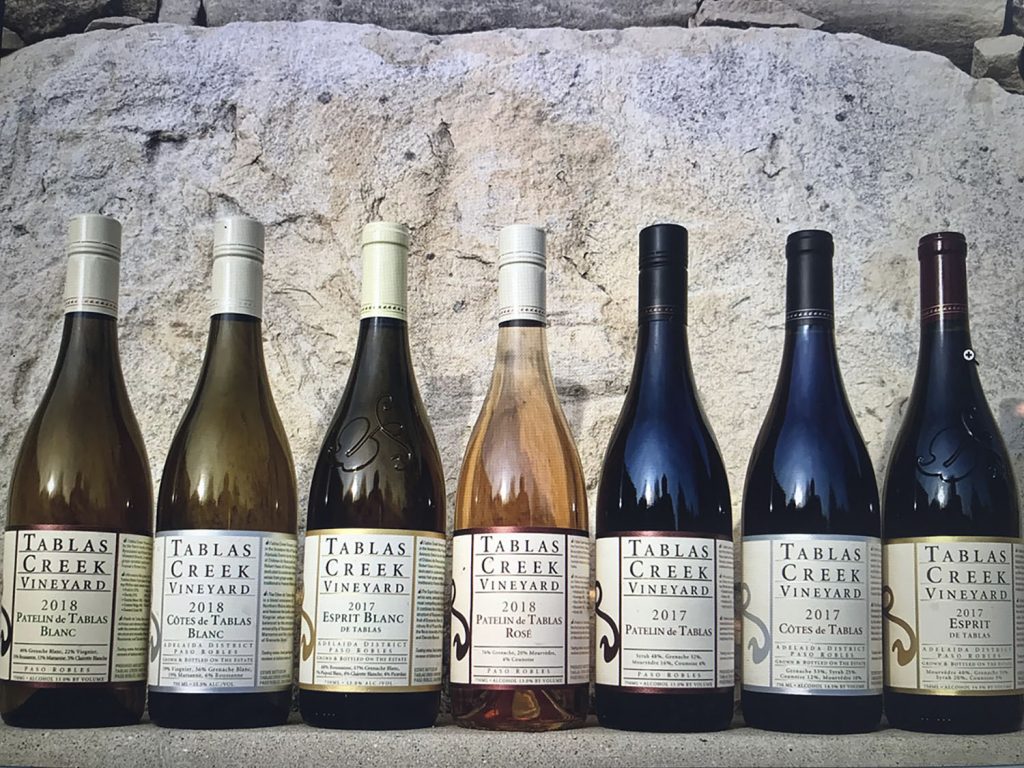
As for the auditing process, Haas said that on site inspection is conducted by ROA auditors. For carbon capture, soil samples are sent to laboratories that certify the results.
“Agriculture can be a solution rather than a problem,” said Whitlow. “Healthy soil can sequester carbon” if a farmer pursues the practice of “no-till’ farming since tilling releases carbon and disturbs the soil’s microbial life.
How does ROA differ from practices such as sustainability, organic and biodynamic all of which follow a baseline of national organic program standards? I asked Haas.
There is a legitimate critique of sustainability standards, Haas argued, as certifications “are broad but relatively shallow where you get points for all good things you do but maybe you haven’t totally eliminated Roundup [weed killer] in your vineyard. But you have created wildlife pass-throughs.”
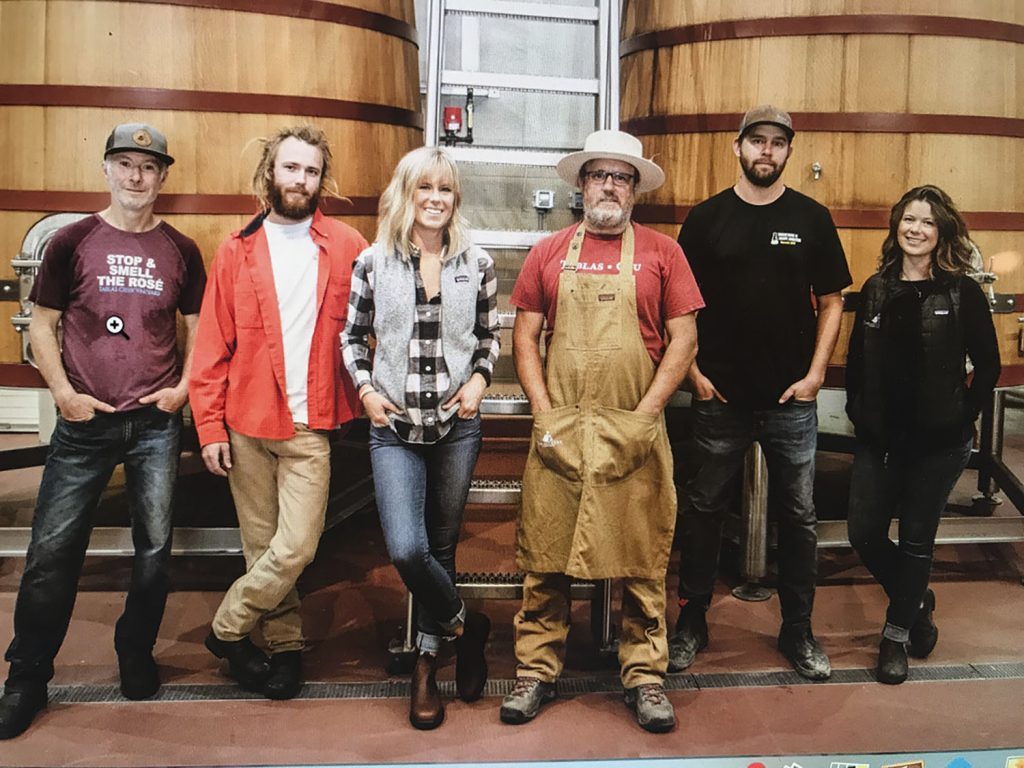
Haas also offered a “legitimate critique” of the organic certification program “in that it’s a very narrow focus — you just can’t use these chemicals. If you don’t use these chemicals, you’re organic.”
As for biodynamic, Haas insisted that “there are pieces of the program well grounded in science and there are pieces that [deal] with the cycles of the moon and application of crystals and the burial of cow horns — things that probably don’t hold up to a lot of scientific analysis. I think that limits the credibility of the approach.”
What Haas finds appealing about regenerative organic is its take on the holistic aspect of biodynamic. “It focuses on the soil and the microbiome and separates that from the astrology component.”
While Tablas Creek is the first winery to receive the ROC’s certification, Haas hopes that won’t be for long.
“This is still essentially a pilot program,” he noted. “We’re talking thousands of acres [worldwide] that have been certified. That’s a drop in the bucket. I know they’ve gotten already a couple dozen applications for 2021 from other vineyards and wineries.
“It’s great we’re doing this on 175 acres here but their goal is to get millions of acres farmed this way at which point the amount of carbon pulled out of the atmosphere is meaningful.”
